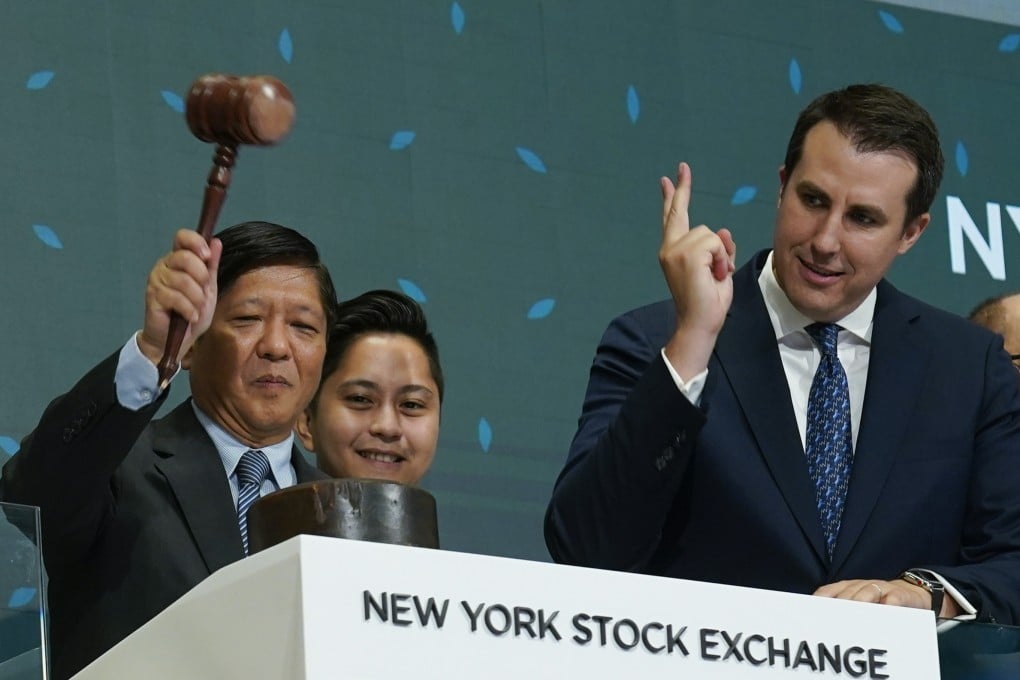Philippines’ President Ferdinand Marcos Jnr pitches US investors, unlike pro-China Duterte
- The Filipino president is in New York where he rang stock exchange bell and gave a speech; he is also due at the UN General Assembly
- He said his ‘vision’ for the future was ‘having the United States as a partner’, in contrast to his predecessor, who courted Beijing

Filipino President Ferdinand Marcos Jnr has said the future of his nation is tied up with the United States as a “partner”, in effect reversing his predecessor Rodrigo Duterte’s approach of “separation” from the global superpower and a pro-China orientation.
After ringing the closing bell at the New York Stock Exchange on Monday, Marcos Jnr said it was “very clear to me in my vision for the way that the country will move forward that I cannot see the Philippines in the future without having the United States as a partner”.
He added: “When we are in crisis, we look to the United States.”
He urged US investors to invest in his country and explained how they have helped it, saying “many drivers of the early economy were actually American corporations. Many of the strongest corporate benefactors really, to government and to the rest of society in the Philippines, were coming from the United States”.
Such words are in stark contrast to Duterte, who, during a visit to Beijing in 2016, early in his term, announced the Philippines “separation” from the US. He also threatened to end a military deal with his nation’s former coloniser but retained it eventually as he thanked the US for Covid-19 vaccines.